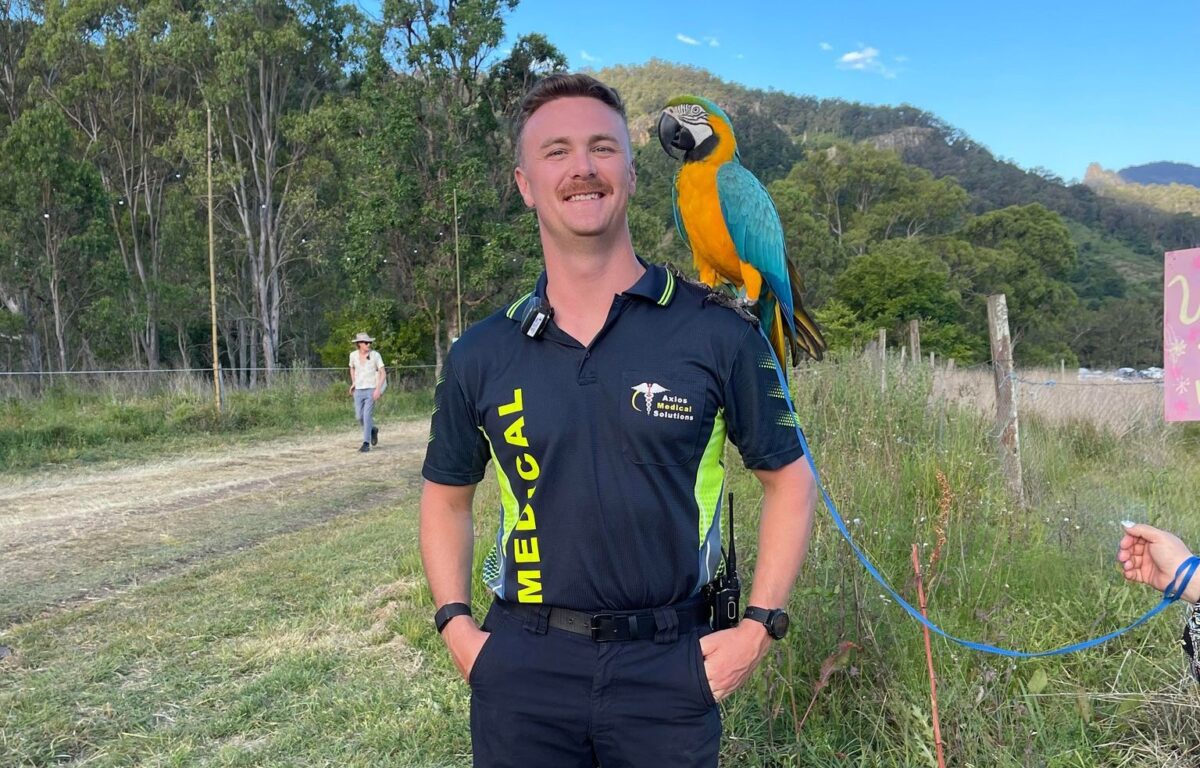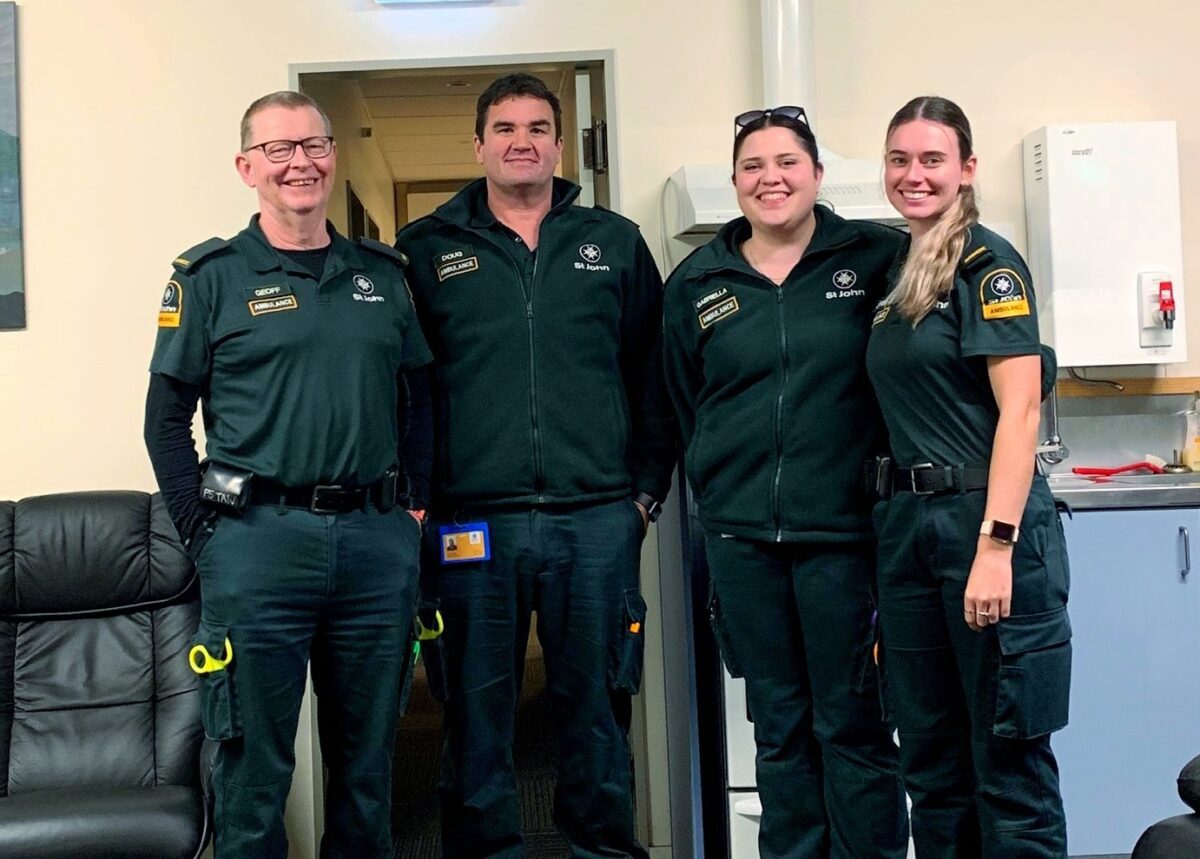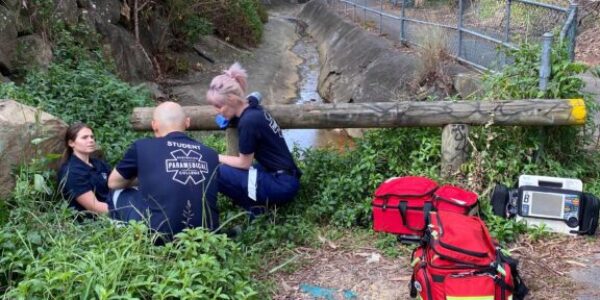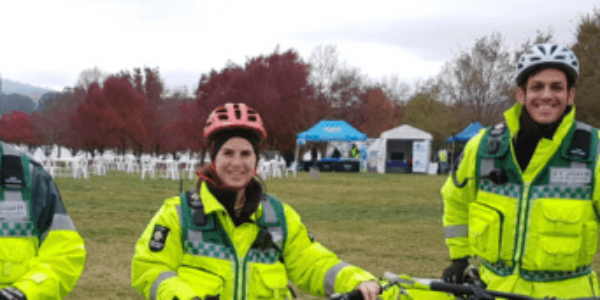Re-published 9th February, 2024.
Have you ever wanted to gain employment with the Queensland Ambulance Service as a Paramedic? If so, we don’t blame you. Not only is paramedicine listed as one of the most trusted professions across Australia, it’s also a fulfilling career that makes you part of not only a nationwide operation, but one globally. Whilst the name ‘paramedic’ may vary across the globe, the requirement of medically trained personnel will never cease meaning that employment for you as a paramedic exists worldwide.
Keep reading to understand the requirements/subjects needed to work as a paramedic with QAS, recruitment processes and salaries!
The Queensland Ambulance Service
Whether you’re assessing it geographically or demographically, QAS is one of the largest ambulance services across Australia*. Servicing more than 5.5 million individuals* annually, approximately 2,900 patients are treated daily by QAS, consisting of 45 calls for life-threatening cases such as cardiac arrest, drownings, car accidents etc.
*Source: Queensland Ambulance Service (2024)
*Source: Queensland Government (2024)
Queensland Ambulance Service Jobs
Whilst looks can be deceiving – there are more than just triple zero (000) call takers (otherwise known as Emergency Medical Dispatchers) and Paramedics employed at QAS. QAS hire for positions such as Patient Transport Officers within the non-emergency sector, but also volunteering roles as First Responders, Honourary Ambulance Officers, Local Ambulance Committees and more*.
*Queensland Ambulance Service (2024)
How to work for Queensland Ambulance Service
If your goal is working as a Paramedic with QAS, use the below steps as a guide to success!
Step 1 – Understand the education requirements to work as a Paramedic with QAS
Paramedicine is an extremely competitive field. At the end of the day you want the best of the best in treating your parent, child, friend, family member or else, so it makes sense for the entry requirements to be so high. This does come as a negative for those who didn’t receive the ATAR or OP they were needing although – but we speak more on options for those below.
Direct entry into university
Numerous universities offer a Bachelor of Paramedic Science (or similar) throughout Queensland so we encourage those interested in pursuing a career in paramedicine with QAS to do their research to ensure they’re choosing a university fit to their wants and needs.
VET entry into university
If you didn’t receive the ATAR needed for university admission, you’re a mature-aged student who wants to change careers, or you simply wish to explore options before pursuing a bachelor’s degree, APC’s VET entry pathway might be ideal for you!
Studying APC’s HLT51020 – Diploma of Emergency Health Care can place you on the best pathway to success for VET entry into university, and the even better news is that CQUniversity (CQU) accepts VET Entry and has RPL available for APC’s graduates to pursue.
Generally, a paramedicine degree can take three years (or more) full-time to complete. By taking advantage of APC’s Diploma-to-Bachelor pathway, you can earn whilst you learn as a graduate, not only providing you with the chance to earn a stable income as an Emergency Medical Technician, (or similar) but also providing you with the confidence needed in-field, plus the chance for discounted university fees and time off your degree too.  APC HLT51020 – Diploma of Emergency Health Care graduate Jarred Mobbs who was awarded as ‘QLD Student of the Year’ for his region, and has since been offered VET entry into CQU thanks to APC.
APC HLT51020 – Diploma of Emergency Health Care graduate Jarred Mobbs who was awarded as ‘QLD Student of the Year’ for his region, and has since been offered VET entry into CQU thanks to APC.
Step 2 – Graduate and become registered with AHPRA
Now that you have completed your studies via direct or VET entry and hold your Bachelor in Paramedic Science (congratulations!), you’re required to register with the Paramedicine Board of Australia – managed by the Australian Health Practitioner Regulation Agency, otherwise known as AHPRA. For many, this is an exciting part of your career as it is one of the final steps needed before you can start applying for a paramedic role with QAS, or any other jurisdictional ambulance service in Australia.
Step 3 – Apply for a QAS Recruitment Campaign
There are two options for paramedic recruitment with QAS – the QAS Graduate Paramedic Program or the QAS Qualified Paramedic Campaign.
The Graduate Paramedic Program
If you’re newly graduated (and registered) as a paramedic and wish to kickstart your career with QAS, you’d be looking to apply to this program as it is almost like a paramedic ‘traineeship’ or ‘apprenticeship’. The great news for those who applied for VET entry via APC is that you’ll likely have an advantage over those who completed their studies via direct entry. This is due to completing the Diploma and Bachelor and years of experience working as an EMT (and likely paramedic too) within the private sector, in comparison to an individual who completed their studies via direct entry and may not have as much experience working in the field as you.
This program sees you work alongside experienced QAS personnel full-time across 12 months, mentoring to develop a level of competency required to hold the title ‘Advanced Care Paramedic’ (ACP) – the ‘default’ level of all paramedics working solely or as a team with QAS. Recruitment drives are annual.
The Qualified Paramedic Campaign
Should you have more than two years’ experience practising as an ACP, this program is for you. Unlike the graduate paramedic program, individuals can only apply for this campaign during active periods at QAS’ discretion. You are welcome to register an expression of interest to be considered for future drives. Pictured to the right – APC graduate-turned QAS Paramedic, Jennifer Rearden who completed her Bachelor at CQU.
Pictured to the right – APC graduate-turned QAS Paramedic, Jennifer Rearden who completed her Bachelor at CQU.
What is the salary of a Paramedic working with Queensland Ambulance Service?
Salaries are subjective as they’re often based not only on your skillsets but experience, residing location and that golden word – overtime.
In good news, when you work for QAS, your earnings and the stages of salaries are quite transparent thanks to the ‘Queensland Ambulance Service Certified Agreement’. This agreement is an easily sourced online document that outlines leave entitlements, wages, working hours, employment conditions and more individuals working for QAS. At the time of this blog’s release, the latest version is from 2022 and is due to be updated in late 2025.*
*Queensland Industrial Relations Commission (2024)
For your convenience we have simplified the data for your review below:
QAS Paramedic Student/Graduate Paramedic salary
As a Paramedic Student/Graduate Paramedic working for QAS, you can expect to earn between $66,100 – $88,104.
QAS Advanced Care Paramedic salary
Should you be working as an Advanced Care Paramedic with QAS, a salary of $81,894 – $101,331 could be earned.
QAS Intensive Care Paramedic salary
An individual working as an Intensive Care Paramedic at QAS can earn between $103,574 – $127,316.
QAS Station Officer salary
As a QAS Station Officer, salaries between $113,671 – $125,564 can be expected.
Ready to apply?
Are you ready to kickstart your APC journey to pursue a career with Queensland Ambulance Service? If so, don’t delay and apply today.
To learn more about APC’s pathways on how to become a paramedic, click the button below. Alternatively, you can lodge your application to speak to one of our friendly Course Advisors here.
We look forward to hearing from you!


